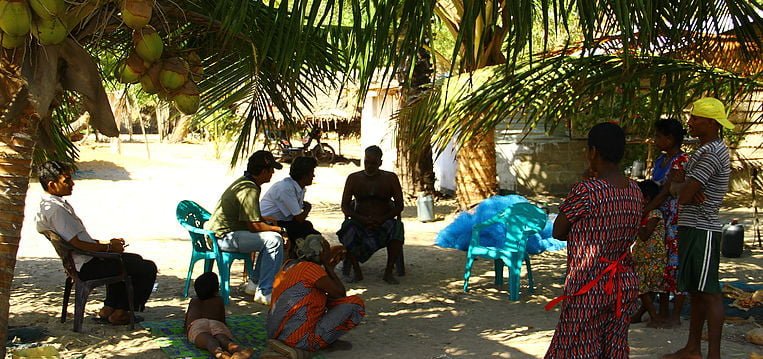Preliminary Investigations into Depleted Dugong Populations in North West Sri Lanka
January 01, 2016
by Ranil Nanayakkara,
BEAR, Sri Lanka
Preliminary investigatory surveys conducted by BEAR (Biodoversity Education And Research) have confirmed that local fisher folk are aware of the presence of dugongs in the waters around the small islets and off the main seaboard of North West Sri Lanka. Their information provides material evidence for further action.
The current dugong population is low in abundance compared to historical figures and is considered to be seriously vulnerable, with population numbers continuously depleting and at least one, perhaps more, dugong being “taken” each month.
Due to the depletion of the seagrass beds in this area, the local fishermen report a significant decrease in their daily catch, which has directly impacted their income and economic well-being. The destruction of seagrass beds is a direct result of fishermen continuing to use illegal fishing nets; the argument being that fisher folk are unable to purchase legal equipment due to economic constraints. The relevant authorities, too, do not appear to support or display much interest in assisting them to purchase the prescribed nets. They also indicate that the use of dynamite by a minority of fisher folk continues to cause extensive damage to the seagrass environment. This method is supported by and carried out at the urging of influential local business persons in anticipation of short-term monetary gains, despite being aware of the long-term damage and consequent economic loss to the fishing communities.
